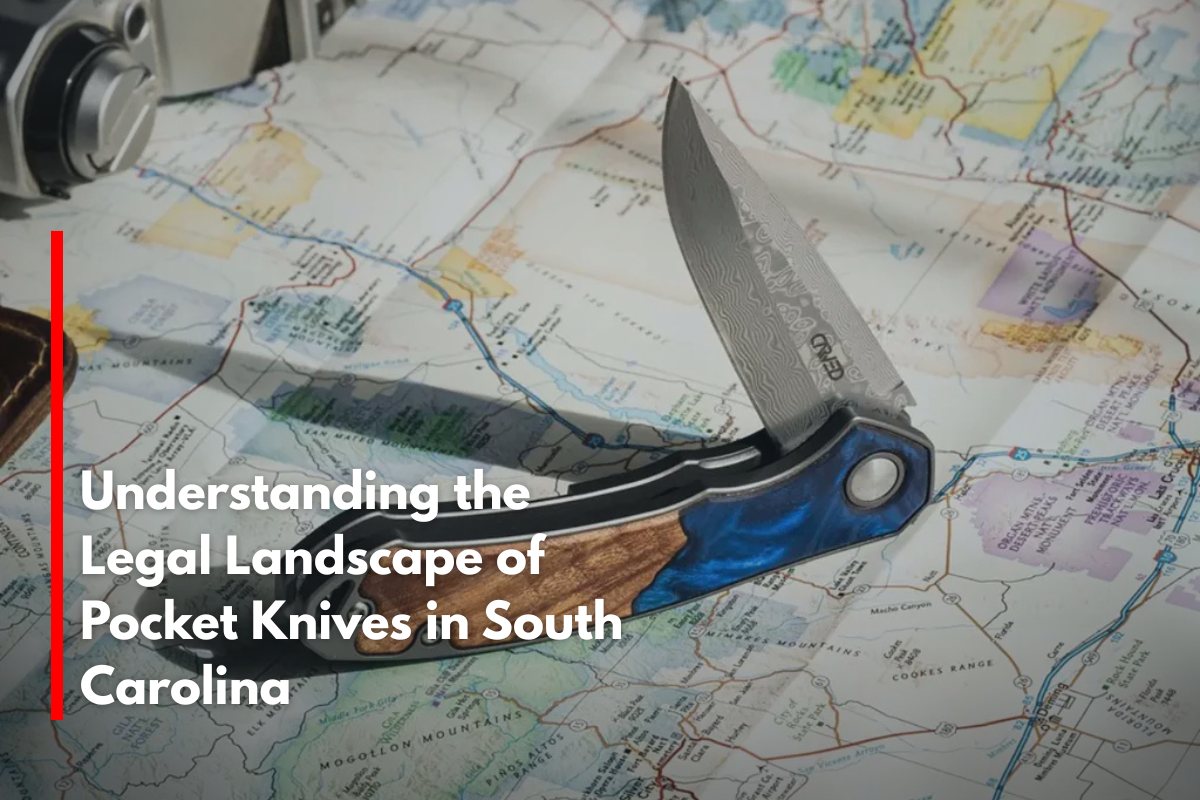Pocket knives are widely used everyday tools and self-defense items across the United States, including South Carolina. However, the state’s laws regarding the ownership, carrying, and use of pocket knives may differ from what some expect. Understanding South Carolina’s knife laws in 2025 is essential for residents and visitors to stay compliant while carrying pocket knives for lawful purposes.
Pocket Knife Ownership and Carrying: What’s Legal?
South Carolina is known for having relatively permissive knife laws. Generally, it is legal to own and carry most types of knives, including pocket knives, dirks, daggers, and folding knives. There are no statewide restrictions on the type, style, or blade length of knives one can carry openly or concealed, as long as the knife is not used to commit a crime.
This means pocket knives of almost any reasonable size may be carried without a permit or license for everyday use, work, or recreational activities.
Concealed vs. Open Carry of Pocket Knives
South Carolina law allows for both open carry and concealed carry of pocket knives. Open carry means the knife is visible, such as clipped to a belt or in a visible sheath, while concealed carry means the knife is hidden from view on the person.
However, the state law prohibits carrying knives with the intent to use them unlawfully, which could nullify protections for concealed or open carry. Also, some localities may have their own ordinances limiting knife carry, so checking city-specific rules in places like Charleston, Columbia, or Greenville is advised.
Special Restrictions: Schools and Government Buildings
South Carolina law restricts the carrying of knives with blades longer than two inches on school grounds unless carried by authorized personnel such as law enforcement. This is intended to enhance student safety and prevent incidents involving weapons in schools.
Government buildings may also have restrictions banning or limiting knives to comply with security policies. It is important to respect signs and rules at these locations.
Switchblades, Gravity Knives, and Other Exceptions
Some knives, such as switchblades and gravity knives, which open automatically or by gravity, are treated differently under the law due to their quick deployment ability. South Carolina does allow possession of such knives but they cannot be carried concealed with intent to commit a crime.
Knife Length Limits and Measurement
Unlike many states, South Carolina does not impose a specific blade length limit on pocket knives carried generally. However, precise measurement of blade length—typically from the tip to the point where the blade joins the handle—is important for determining if local ordinances or school restrictions apply.
Responsible Use and Safety
Regardless of legal allowances, handling pocket knives responsibly is vital. South Carolina encourages safe knife storage, use, and proper training to reduce accidents. Knives should never be carried by minors unsupervised, nor used while impaired by alcohol or drugs.
In summary, South Carolina supports broad freedom to own and carry pocket knives, including open and concealed carry, without stringent restrictions on blade length or type. Yet individuals must always comply with special location rules, avoid any criminal misuse, and consider local ordinances that may impose additional guidelines. By staying informed and responsible, carrying a pocket knife in South Carolina can be a practical and lawful part of daily life.
Sources
(https://tkellknives.com/knife-laws-in-south-carolina-a-comprehensive-legal-guide/)
(https://www.carved.com/blogs/life-at-carved/pocket-knife-rules-laws-by-state)
(https://nobliecustomknives.com/us-knife-laws/south-carolina-knife-laws/)
(https://knifeup.com/south-carolina-knife-laws/)
(https://www.bradrichardsonlawfirm.com/blog/can-you-carry-a-knife-in-south-carolina/)











